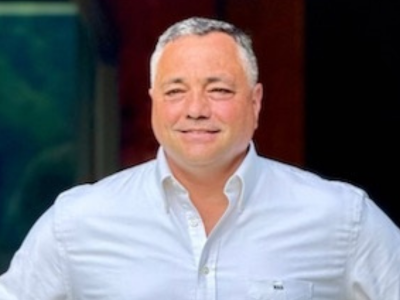Behind the wheel: Tackling trends and troubles in transportation

Behind the wheel: Tackling trends and troubles in transportation | Insurance Business America
Motor & Fleet
Behind the wheel: Tackling trends and troubles in transportation
“Auto, in general, has increased between five and 15% every year since 2017”
Motor & Fleet
By
Chris Davis
 Michael Abacherli (pictured), a program manager at Acrisure of New England, holds a pivotal but varied role within the fifth-largest broker in the United States, focusing on transportation insurance.
Michael Abacherli (pictured), a program manager at Acrisure of New England, holds a pivotal but varied role within the fifth-largest broker in the United States, focusing on transportation insurance.
“We specialize in moving, storage, and last-mile delivery,” Abacherli told IB. “Our sign is on the side of Pittsburgh stadium where the Steelers play, which showcases our size and scope.”
And, discussing current market trends, Abacherli reveals there’s been a significant rise in auto insurance premiums.
“Auto, in general, has increased between five and 15% every year since 2017,” he explained. The growth, he clarified, is primarily due to increased premiums rather than an influx of new businesses. “Moving and storage is a service business that’s cyclical. If the real estate market doesn’t move, people don’t move,” Abacherli added.
States with transportation insurance issues
Abacherli also pinpoints the specific states that pose challenges for transportation insurance.
“Florida, California, Texas, Louisiana, New York, and New Jersey are trouble states, especially for auto insurance,” he said. “We write in all 48 [mainland] states and also Alaska, but Florida and California have become more challenging from a transportation standpoint.”
Assessing commercial auto insurance
For small and medium-sized enterprises (SMEs) assessing their commercial auto insurance, Abacherli emphasizes the importance of safety records and hiring practices.
“Your safety record is key,” he explained. “If you hire people with bad driving habits, you will have bad insurance habits. The more you train your drivers to be better, more professional drivers, the lower your auto policies will be. If you train the people to drive safely and not be a cowboy on the highway, and you abide by the laws and you don’t set time limits on them, then you’ll have less accidents. The more you train your drivers to be better, more professional drivers, the lower your auto policies will be – because the people who get increases of 5-10% to 15%, they don’t have losses. The people who have 20 to 30% loss increases have 20-30% in loss ratio.”
Addressing modern transport needs
On the topic of modern electric vehicles versus older fleets, Abacherli highlights the role of technology in enhancing safety and reducing premiums.
“People who are adding technology to their fleet, whether it’s GPS tracking or front-facing and rear-facing cameras, are seeing the benefits,” he said.
And in the realm of warehousing and self-storage, climate and construction play pivotal roles. “If you are too close to the ocean or in high fire areas like California, getting coverage for larger warehousing can be difficult,” Abacherli said. “A non-sprinklered building in Pennsylvania might not be a problem, but, in California, it’s a different story.
Looking ahead, Abacherli noted the challenges of insuring different vehicle types, especially around modern electric vehicles.
“High-end fleets have a lot of integral parts to them,” he said. “People who take care of their fleet and maintain it properly tend to have fewer issues. Adding technology like GPS tracking and monitoring driving behaviors can make a significant difference.
“There’s all sorts of [challenges]. Things change [because of] climate as to what kind of premiums we’re generating – what kind of losses. And that’s where the actuaries come in. It’s very fluid. One day, who you think is a really strong carrier with great specialized programs has decided we’ve had enough – they just change face and insure a different type of exposure.”
Related Stories
Keep up with the latest news and events
Join our mailing list, it’s free!






